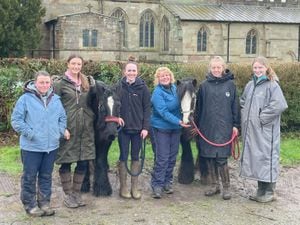Getting to grips with record keeping
As a rural chartered surveyor, I generally advise on valuations, landlord and tenant matters, grants and stewardships and planning matters.

However, increasingly I am being asked to advise farmers and landowners on what records they should be keeping to be compliant in regards to receiving the basic payment subsidy.
Farmers in England who receive the Basic Payment Scheme subsidy should adhere to an area of regulation known as cross compliance, with which any recipient of the basic payment subsidy will be only too familiar.
Cross compliance features two main branches; Good Agricultural and Environmental Conditions (GAECs) and Statutory Management Requirements. GAECs cover matters such as maintaining a minimum soil cover and protecting boundary features and watercourses. SMRs cover cattle and sheep registration regulations, welfare of livestock and, critically, reducing water pollution in Nitrate Vulnerable Zones.
Part of these requirements involve keeping proper written records. In my experience, farmers are more than capable of adhering to all the registration regulations as well as maintaining high standards of animal welfare. However, often when it comes to maintaining proper NVZ records a lot of farmers simply do not have the time to maintain records that would pass an inspection.
In 2017, the NVZ area in England was expanded, meaning that now the majority of the West Midlands is included within either a ground or surface water NVZ. If your land was included in an NVZ for the first time in 2017, from January 1, 2018, there were transitional arrangements in place to allow you to adjust practices in relation to spreading manufactured nitrogen, poultry manure and slurry. These transitional arrangements ended on July 31 this year, and you are now expected to be fully compliant. This includes producing records.
Farmers affected by NVZs are required to keep records detailing the cropping history of each field parcel, quantities and dates of inorganic fertilisers, and manure applied including the amount of nitrogen applied to the land.
Additionally, they are required to retain an “N Farm Limit” calculation which details the amount of nitrogen produced by livestock on the holding, offset by any imported or exported manure.
Risk maps showing all the land colour coded by the risk level to nitrogen run-off also need to be produced. These records should be updated annually. Failure to produce records at an inspection will likely result in a three per cent penalty to the Basic Payment Subsidy, which is a direct loss to the farming income. This penalty would be multiplied by three if the individual failed to produce NVZ records in the following payment year.
While we do not yet know what a future out of the European Union entails for British agriculture, we can be relatively certain regulations such as cross compliance are here to stay, and particularly with a focus towards “public money for public goods," it suggests record keeping for environmental purposes will become increasingly important.
Ellie Watkins, Agri Advisor





